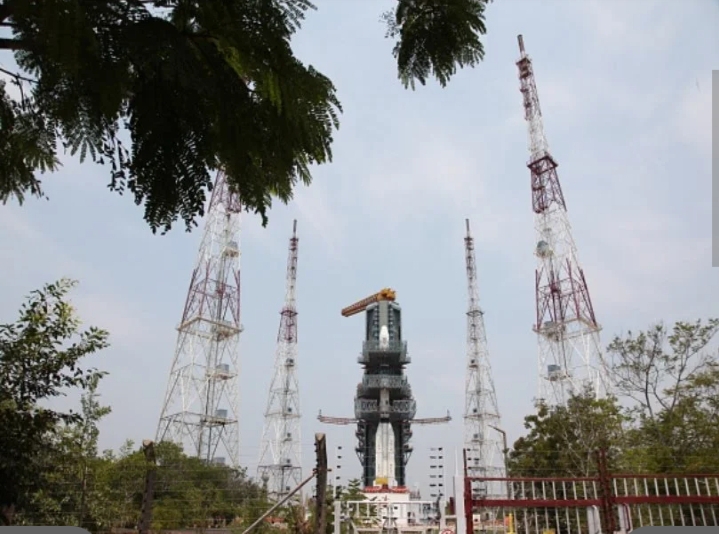Thick orange fumes from the Indian Space Research Organisation’s PSLV C-52 briefly lit up the pre-dawn dark sky and Pulicat Lake as it soared into the skies with the silence of the morning broken by the booming noise of the launch vehicle that carried three satellites on board.
ISRO’s first launch of 2022 and under the new Chairman S. Somanath went off without a glitch, placing all the three satellites into their intended orbit with precision. The PSLV C-52 was the 54th flight of the PSLV and the 23rd mission using the PSLV-XL configuration.
The success of the launch was crucial for ISRO that had a very muted 2020 with just two launches, one of which – the GSLV- F10 failed after launch.
The EOS-04 is a radar imaging satellite designed to provide high-quality images in all weather conditions for flood mapping, agriculture, forestry and plantations, soil moisture and hydrology. It has a mission life of 10 years.
PSLV-C52 was launched into space at 5.59 am with the three satellites on board from the Satish Dhawan Space Centre in Andhra Pradesh’s Sriharikota island. It entered orbit at 6.17 am.
This was ISRO’s first launch mission this year and one held under the new chairperson S Somanath.
The co-passenger satellites include the INS-2TD, which is a part of the India-Bhutan joint satellite. It will assess land and water surface temperatures, delineation of crops and forest and thermal inertia.
The INSPIREsat-1, a student satellite, was also put into orbit. It is a collaboration between Indian Institute of Space Science and Technology and the University of Colorado in the United States. Through this satellite, scientists expect to understand several aspects of the sun and the ionosphere.



